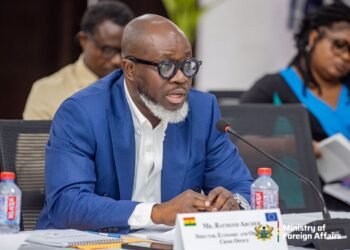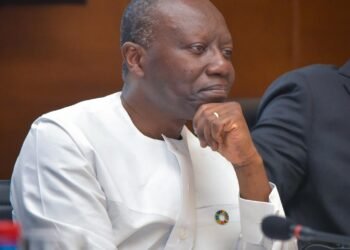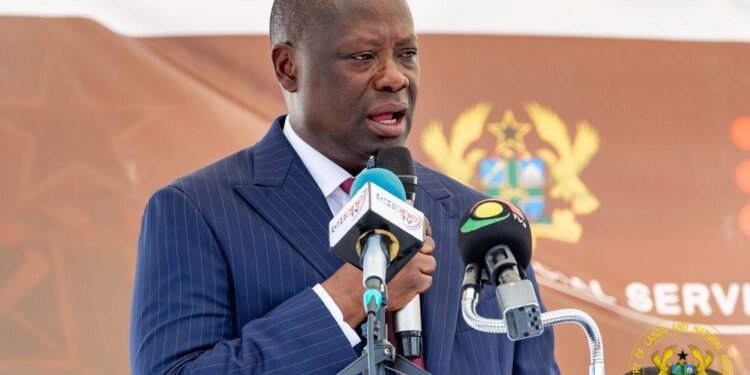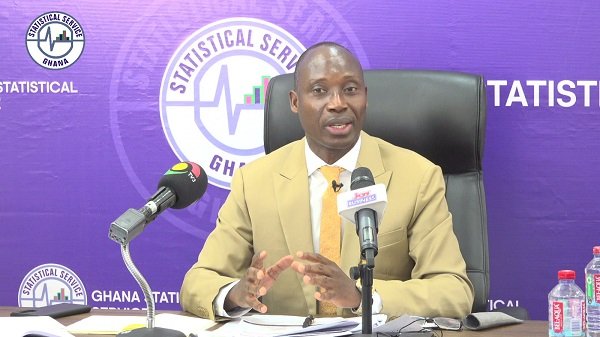Minority Leader of Parliament, Hon. Alexander Afenyo-Markin, opened Parliament’s third meeting of the first session of the Ninth Parliament with a sombre reflection on loss, leadership, and the state of governance.
His wide-ranging address, delivered on behalf of the Minority, captured the grief of a nation still reeling from the August 6 helicopter tragedy and the discontent brewing over unemployment, injustice, and political excesses. Hon. Afenyo-Markin began by honouring eight Ghanaians who perished, including two members of Parliament and key government officials.
He described their passing as a painful reminder of sacrifice in service, urging legislators to “recommit to integrity and patriotism.”
He extended condolences to their families and acknowledged two newly sworn-in MPs – Hon. Hon. Bernard Bediako Baidoo for Akwatia and Hon. Alidu Seidu for Tamale Central – noting that their arrival symbolised both continuity and renewal amid loss.
“We mourn our respected colleague, Hon. Ibrahim Murtala Mohammed, Member of Parliament for Tamale Central and Minister for Environment, Science and Technology and Innovation.
“We also remember Dr. Edward Omane-Boamah, Minister for Defence, Alhaji Muniru Mohammed, Acting Deputy National Security Coordinator, Dr. Samuel Sarpong, Vice-Chairman of the NDC, and Samuel Aboagye, former Parliamentary Candidate, alongside Squadron Leader Peter Bafemi Anala, Flying Officer Manean Chum-Ampadu, and Sergeant Ernest Addo Mensah”
Hon. Alexander Afenyo-Markin, Minority Leader

Economic Hardships
The Minority Leader’s tribute framed the tone for a speech that transitioned from mourning to governance critique as he cautioned that beneath Ghana’s “modest macroeconomic stability,” lay widespread hardship. Ordinary Ghanaians, he argued, continued to bear the brunt of joblessness and rising living costs despite projections of recovery.
“Stabilisation means little if the youth remain unemployed and families still struggle with the cost of living,” he said, describing the wave of dismissals that accompanied the transition of government across state institutions as “a direct assault on the integrity of public service.”
Hon. Afenyo-Markin accused NDC government operatives of dismissing competent civil servants on political grounds, claiming that directives from the Chief of Staff some months ago had undermined professional independence in the country.
He pointed to labour unrest as a symptom of deeper malaise, as evidenced in recent protests by junior doctors, nurses, and teachers who have gone months without pay. According to him, these failings by the government reveal a disconnect between rhetoric and compassion in public policy.
Under the government of President John Dramani Mahama, he noted, such grievances must be met with urgency – arguing that the economic and social contract between leadership and citizens demand fairness and consistency, not partisanship and neglect.
The Minority Leader revisited the One District, One Factory initiative launched under the previous administration, lamenting its current stagnation. According to him, the vision of industrial empowerment through private-sector partnership, once pursued by the erstwhile government, was now being lost to bureaucracy and excessive control.
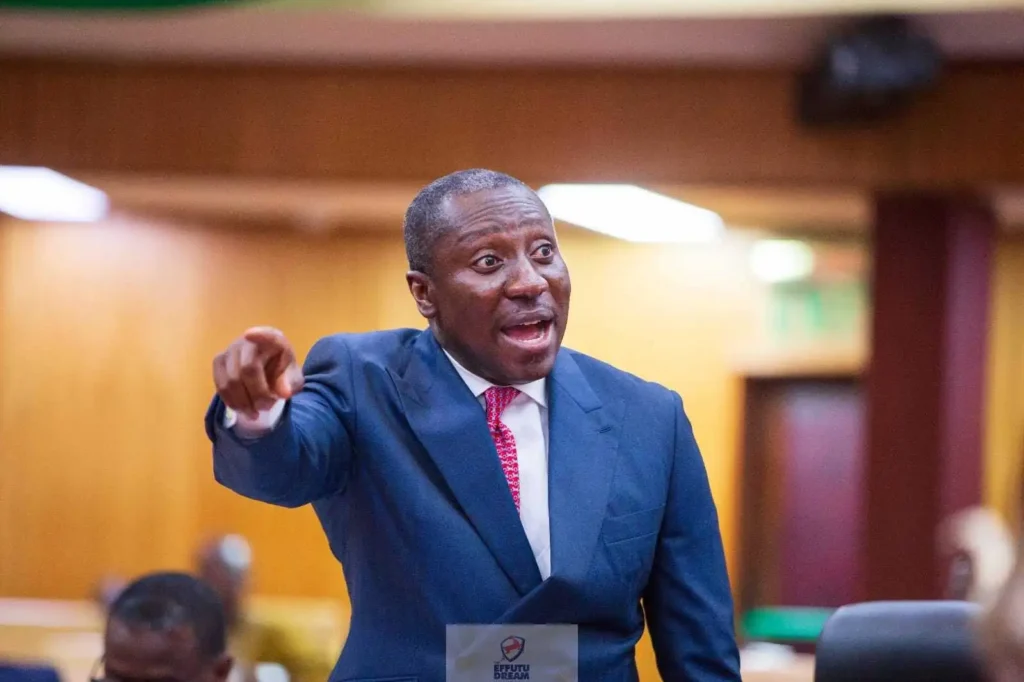
“Instead of providing real support to existing private sector jobs and easing the cost of doing business, bureaucracies are being created, frustrating investors and entrepreneurs. No economy can grow when private sector initiative is replaced with political control”
Hon. Alexander Afenyo-Markin, Minority Leader
Hon. Afenyo-Markin urged the government to make the proposed 24-hour economy meaningful by translating it into practical employment opportunities rather than slogans. He argued that the settling in phase was over for the new government was over, that economic rhetoric must now “evolve” into tangible reforms that deliver jobs, enhance productivity, and encourage innovation.
Governance and Civic Reforms
Moving to governance and civic freedoms, he expressed grave concern about the shrinking democratic space.
Hon. Afenyo-Markin cited the arrests of journalists, opposition figures, and social media users as evidence of intolerance. Referring to the case of David Afull Kwodwo Prah, popularly known as Kwame Nkrumah No. 2, he questioned the state’s selective application of justice.
“After a live stream on social media, he was swiftly arrested, prosecuted and sentenced to seven months in prison. Much as the law must be applied, we must ask, is a state equally swift when government-affiliated individuals commit similar or worse infractions”
Hon. Alexander Afenyo-Markin, Minority Leader
He compared this to the silence following inflammatory and threatening remarks made against him by the National Vice Chairman of the NDC, Sofo Azorka during the Akwatia by-election, where no police action was taken, describing the disparity as “harsh justice for critics and leniency for allies.”

Hon. Afenyo-Markin warned that such tendencies eroded confidence in the rule of law and risked turning justice into an instrument of power.
He also cited the arrest and detention of NPP Bono Regional Chairman, Kwame Baffoe Abronye, Popularly known as Abronye DC, whose case, he said, revealed troubling judicial reasoning. According to him, the presiding judge’s use of literary and political quotations to rationalize unequal treatment in law posed a moral crisis for Ghana’s democracy.
“In delivering judgment, the presiding judge, His Lordship Acquah, cited George Orwell’s Animal Farm, observing that all men are equal, but some are more equal than others. He then quoted the late President Robert Mugabe, saying, ‘I can assure you of freedom of speech, but cannot assure you of freedom after speech’”
Hon. Alexander Afenyo-Markin, Minority Leader
Afenyo-Markin said such judicial reasoning undermined constitutional guarantees and blurred the line between impartial justice and political convenience. “The question we ask as a minority is, is this the reset we were promised or an era of regression into intolerance?”
The Minority leader called for a national reflection on how state power was exercised, warning that democracy itself could be imperiled if freedom became conditional.
On judicial independence, the Minority Leader condemned the removal of former Chief Justice, Gertrude Araba Esaaba Sackey Torkornoo, describing the process as “false, irregular, and lacking transparency.”
He raised constitutional concerns about the apparent manipulation of the Article 146 procedure, alleging that the Pwamang Committee’s report had been submitted secretly and without due process.
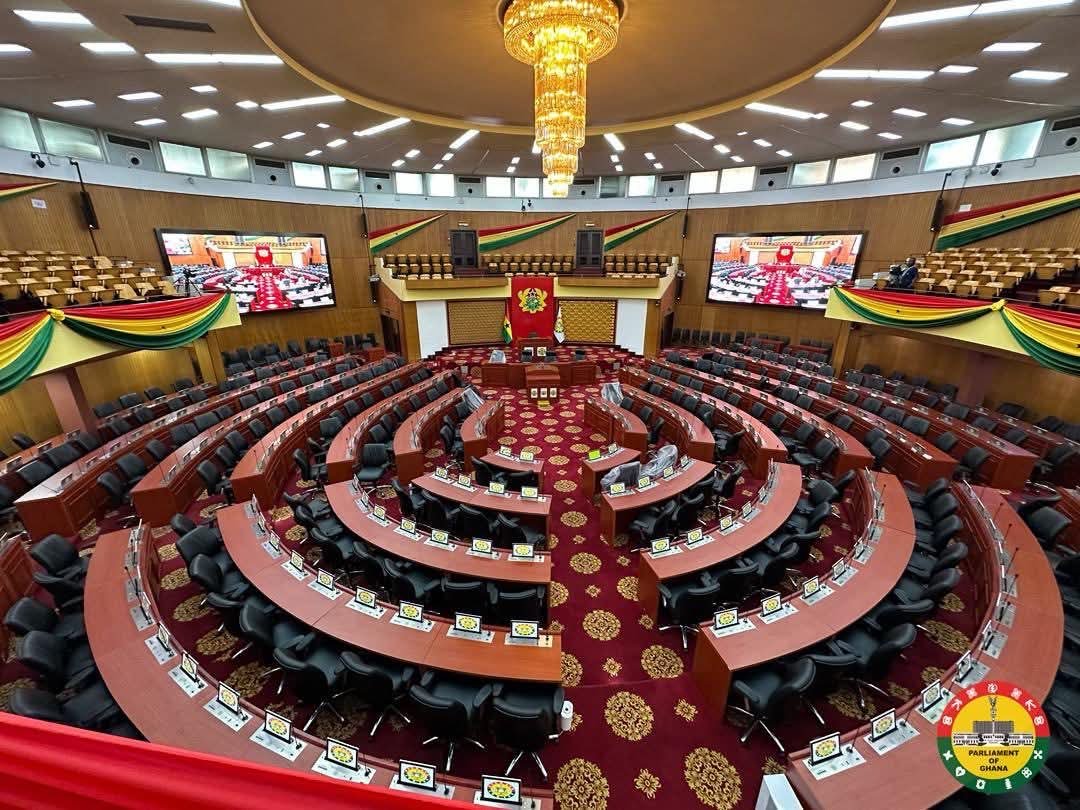
“If this false and irregular process succeeds, it endangers every independent constitutional body. The Auditor-General, the Electoral Commission, the National Commission for Civic Education, even the Public Services Commission could be targeted next under the same Article 146 procedure”
Hon. Alexander Afenyo-Markin, Minority Leader
Hon. Afenyo-Markin reaffirmed that the Minority would demand full disclosure of the Pwamang report and resist any attempt to normalise executive interference in the judiciary.
His address ended on a call for restraint, fairness, and fidelity to democratic principles, reminding Parliament that liberty and justice must remain sacred under all administrations. He assured the house of the minority’s continuous cooperation and support as Parliament resumes.






